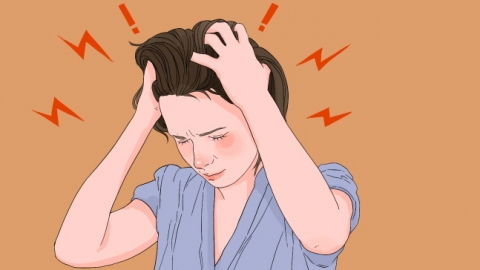What causes dizziness and mental fogginess throughout the day?
Generally, feeling dizzy and sluggish throughout the day may be caused by lack of sleep, excessive mental exertion, high stress levels, anemia, hypertension, and other factors. Symptomatic management through general treatments or medication may be necessary. If symptoms are severe, timely medical consultation is recommended, with treatment carried out under a doctor's guidance. Detailed explanations are as follows:

1. Insufficient Sleep
Long-term late nights, poor sleep quality, or inadequate sleep duration can prevent the body from getting sufficient rest, leading to symptoms of dizziness and mental fogginess. Associated symptoms may include low energy and difficulty concentrating. It is recommended to ensure adequate sleep duration, maintain regular sleep patterns, avoid staying up late, and improve overall sleep quality.
2. Excessive Mental Strain
Extended periods of mental activity, such as working, studying, or playing games, can lead to mental fatigue and cause symptoms like dizziness and mental sluggishness. Accompanying symptoms may include eye fatigue and reduced concentration. It is advisable to take regular breaks, balance work and rest, and avoid prolonged continuous mental exertion to relieve brain fatigue.
3. Excessive Stress
Excessive stress can cause the body to release large amounts of stress hormones, which may interfere with normal physiological functions including sleep, digestion, and the immune system. Chronic stress can also affect the balance of neurotransmitters in the brain, particularly serotonin and dopamine, which are associated with mood regulation, potentially leading to dizziness and mental fogginess, as well as symptoms like anxiety, depression, and insomnia. It is recommended to practice relaxation techniques such as deep breathing, meditation, and yoga to help alleviate stress.
4. Anemia
Anemia refers to a condition where the number of red blood cells or hemoglobin levels fall below the normal range. When red blood cells or hemoglobin are insufficient, oxygen supply to vital organs such as the brain may be affected, causing dizziness and mental sluggishness, as well as symptoms such as rapid heartbeat and shortness of breath. It is recommended to follow medical advice and use medications such as azathioprine tablets, prednisone acetate tablets, and dexamethasone acetate tablets to alleviate symptoms.
5. Hypertension
Hypertension can damage the inner lining of blood vessels, accelerate the process of arteriosclerosis, reduce vascular elasticity, and increase resistance, leading to insufficient blood supply to the brain and causing dizziness and mental fatigue. It may also trigger symptoms such as headaches and vertigo. It is recommended to take medications such as nifedipine tablets, methyldopa tablets, and captopril sustained-release tablets under medical supervision.
It is also recommended to perform simple head massages in daily life, such as massaging the temples for a few minutes each time, which may help relieve discomfort in the head.




